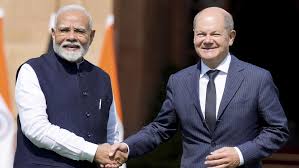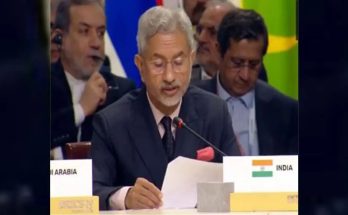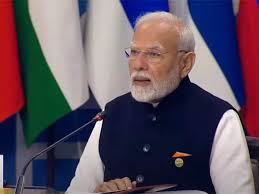PARIS: Unveiling its new initiatives to combat climate change, India has said it will set up eight ecological observatories, including in the Himalayas and Western Ghats, to map the long-term impacts of climate change.
“We will be putting up 8 new observatories in eight different biomes. We have fortunately tremendous diversity in India. We have 17 per cent of world’s population, 17 per cent of cattle population but we have only 2.5 per cent of world’s landmass but still we have eight per cent of biodiversity in India,” Environment Minister Prakash Javadekar said while launching the Long Term Ecological Observatories (LETO) Programme on December 8.
“We will be putting up in Himalayas, Western Ghats, central India to Sunderbans and from Jammu and Kashmir to Rajasthan and Gujarat. We have ten coastal states, ten Himalayan states, ten forest dominant states, 1300 islands. This new initiative which is science based is very important,” Mr Javadekar said.
Launching a booklet on climate-friendly lifestyle practices in India which highlights the Indian ethos of conservation, Mr Javadekar emphasised that at present many countries assess the situation based on model studies but India will do it on practical basis.
India has been doing long-term ecological monitoring only at one place in the country at a 50-hectare plot at Mudumalai. It has been monitored for over the past 30 years by the Indian Institute of Science, Bangalore, according to officials.
Enabling Indian scientists to join international initiatives on the subject, the LTEO programme will provide empirical data on actual impacts on various ecosystems, thereby indicating the need for imminent adaptation measures.
“Research on climate change is largely dominated by modellers and economists with futuristic projections,” Mr Javadekar said. “It is high time that biologists undertake targeted research with a view to discovering and compiling solid empirical data sets which separate the impact of change from background noise arising from local pollution, habitat fragmentation and climate variability,” he added.
The LETO programme will assist in building capacity within India in the area of climate change impacts by training students and young scientists through sustained long-term support for research in these key areas.
Values and Synthesis
The booklet on lifestyle, which was released by Mr Javadekar, contains a special reference to Indian lifestyle. “In the advanced countries, we find that with more money and per capita income, people are consuming more. The earth overshoot report has said that if we continue consuming without any limits, we will require four planets but we have only one. It is ethos, it is the values with which people here consume. Therefore in India, Africa, we find many sustainable lifestyle practices,” Mr Javadekar added.
“We think synthesis between the existence of man, community and nature. With synthesis in mind, we have brought out this booklet,” he said.
Author Profile
- India Writes Network (www.indiawrites.org) is an emerging think tank and a media-publishing company focused on international affairs & the India Story. Centre for Global India Insights is the research arm of India Writes Network. To subscribe to India and the World, write to editor@indiawrites.org. A venture of TGII Media Private Limited, a leading media, publishing and consultancy company, IWN has carved a niche for balanced and exhaustive reporting and analysis of international affairs. Eminent personalities, politicians, diplomats, authors, strategy gurus and news-makers have contributed to India Writes Network, as also “India and the World,” a magazine focused on global affairs.
Latest entries
 Business with IndiaOctober 25, 2024Modi’s new mantra for blending India’s Dynamism with Germany’s Precision
Business with IndiaOctober 25, 2024Modi’s new mantra for blending India’s Dynamism with Germany’s Precision China ConnectOctober 23, 2024“Our Diversity and Belief in a Multipolar World Are Our Strengths”: PM Modi at BRICS Summit
China ConnectOctober 23, 2024“Our Diversity and Belief in a Multipolar World Are Our Strengths”: PM Modi at BRICS Summit DiplomacyOctober 23, 2024“BRICS: A Beacon of Hope for Global Unity and Reforms “
DiplomacyOctober 23, 2024“BRICS: A Beacon of Hope for Global Unity and Reforms “ DiplomacyOctober 23, 2024Deepening Ties Amidst Global Turmoil: PM Modi Meets Iranian President at BRICS Summit
DiplomacyOctober 23, 2024Deepening Ties Amidst Global Turmoil: PM Modi Meets Iranian President at BRICS Summit







